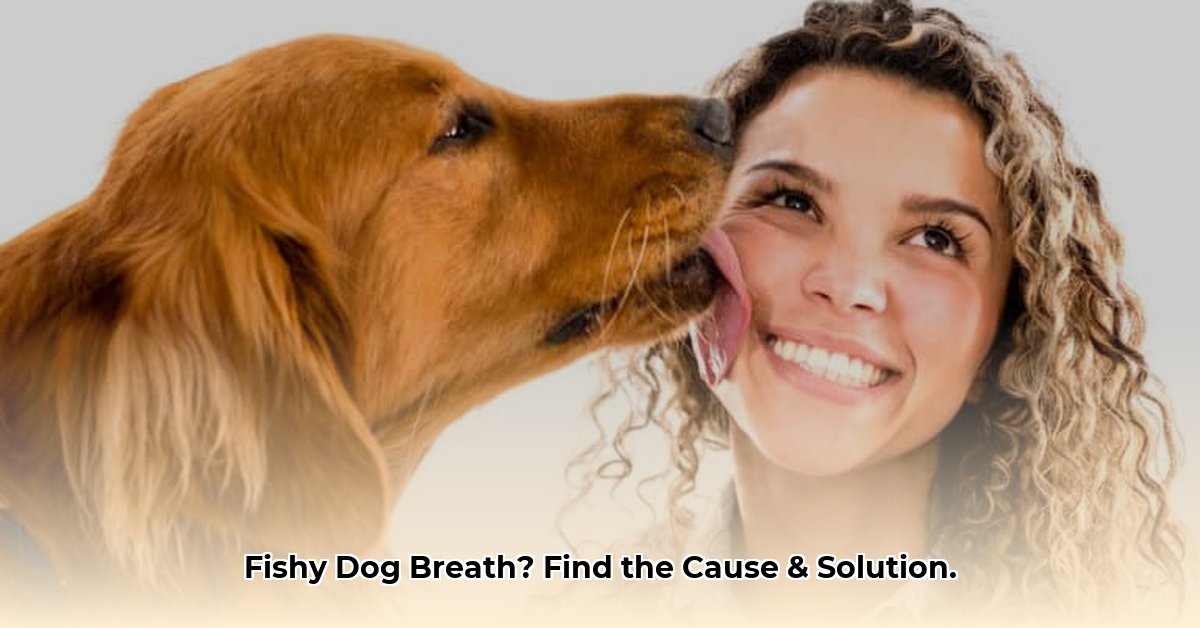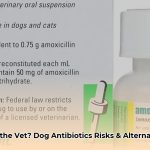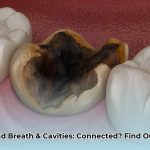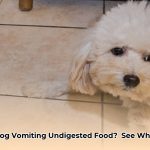Does your dog’s breath smell a bit…off? Like a seafood market gone wrong? Fishy breath in dogs is never a good sign and warrants investigation. This guide will help you understand why your dog’s breath might smell like fish, what you can do about it, and when to seek veterinary care.
Decoding the Fishy Fumes: Potential Causes
That unpleasant odor emanating from your dog’s mouth likely signals an underlying issue. Let’s explore some of the most common culprits:
Dental Disease
The most frequent cause of fishy dog breath is dental disease. Food particles and bacteria accumulate, forming plaque and tartar. This leads to gingivitis (gum inflammation) and eventually periodontal disease, affecting the tissues supporting the teeth.
Symptoms: Bad breath, red or swollen gums, bleeding gums, difficulty chewing, loose teeth, excessive drooling.
(Insert image: Healthy teeth and gums vs. teeth with tartar and inflamed gums)
Kidney Disease
When kidneys malfunction, waste products build up in the bloodstream, sometimes causing a fishy or ammonia-like odor on the breath.
Symptoms: Fishy/ammonia breath, increased thirst and urination, lethargy, decreased appetite, vomiting.
Liver Disease
Similar to kidney disease, liver problems can release toxins into the body, potentially leading to fishy breath.
Symptoms: Fishy breath, vomiting, jaundice (yellowing of gums, skin, and eyes), decreased appetite, weight loss, abdominal swelling.
Oral Infections
Infections in the mouth, such as abscesses or tumors, can also produce a fishy odor.
Symptoms: Fishy breath, swelling, redness, discharge in the mouth, pain, difficulty eating.
Diabetes
While often associated with a sweet, fruity breath odor, diabetes can occasionally cause a fishy smell.
Symptoms: Sweet or fishy breath, increased thirst and urination, increased appetite with weight loss, lethargy.
Anal Gland Issues
While less common, impacted or infected anal glands can produce a foul odor that a dog may transfer to their breath through licking.
Symptoms: Scooting, licking or biting at the rear end, a foul, fishy or musty odor.
Diet and Scavenging
Occasionally, a dog’s diet or scavenging habits can contribute to fishy breath. Spoiled food, especially fish, can cause a lingering odor.
Symptoms: Fishy breath after eating certain foods, evidence of scavenging (trash raiding, eating feces).
Action Plan: Addressing Fishy Breath
1. Veterinary Examination: The Essential First Step
A visit to your veterinarian is crucial. They’ll perform a physical exam, possibly including blood and urine tests, and a thorough oral examination. Dental X-rays might be necessary to assess the extent of dental disease.
2. Targeted Treatments: Addressing the Root Cause
- Dental Disease: Professional dental cleaning, which removes plaque and tartar buildup under anesthesia, is typically the first line of treatment. Tooth extractions may be necessary for severely damaged teeth.
- Kidney/Liver Disease: Treatment focuses on managing the underlying condition through medication, dietary changes, and supportive care.
- Oral Infections: Antibiotics or other medications may be prescribed to combat infection. Surgical removal of tumors or abscesses may be required.
- Diabetes: Management involves regular insulin injections, dietary adjustments, and close monitoring of blood glucose levels.
- Anal Gland Issues: Manual expression of the anal glands by a veterinarian can provide temporary relief. In chronic cases, surgical removal of the glands may be considered.
3. Home Care and Prevention: Maintaining Fresh Breath
- Toothbrushing: Daily brushing with pet-safe toothpaste is the cornerstone of at-home dental care.
- (Insert short video: How to brush your dog’s teeth)
- Dental Chews and Toys: These can help mechanically remove plaque and tartar. Choose products approved by the Veterinary Oral Health Council (VOHC).
- Dental Diets: Therapeutic dental diets are formulated to reduce plaque and tartar buildup.
- Regular Veterinary Checkups: Biannual checkups, including oral examinations, are crucial for early detection and prevention of dental and other health issues.
Troubleshooting: Persistent Fishy Breath
“My dog’s breath still smells fishy after a dental cleaning!”
This could indicate an underlying issue like kidney or liver disease, an undetected oral infection, or even something as simple as a retained food particle. Schedule a follow-up with your veterinarian to investigate further.
Quick Reference Guide
| Potential Cause | Symptoms | Solution |
|---|---|---|
| Dental Disease | Bad breath, red/swollen gums, difficulty chewing | Professional cleaning, home dental care |
| Kidney Disease | Fishy/ammonia breath, increased thirst/urination | Veterinary management, dietary changes |
| Liver Disease | Fishy breath, vomiting, jaundice | Veterinary management, supportive care |
| Oral Infection | Fishy breath, swelling, redness, discharge | Veterinary treatment (antibiotics, surgery) |
| Diabetes | Sweet/fishy breath, increased thirst/urination, weight loss | Insulin therapy, dietary management |
| Anal Gland Issues | Scooting, licking rear, foul odor | Anal gland expression, possible surgery |
| Diet/Scavenging | Fishy breath after eating certain foods | Dietary adjustments, prevent access to inappropriate foods |
The Importance of Veterinary Care
Fishy breath is often a symptom of an underlying medical condition. While some causes are relatively minor, others can be serious. Don’t delay seeking veterinary care if your dog’s breath has a persistent fishy odor. Early diagnosis and treatment are essential for maintaining your dog’s health and well-being.
- Mind Full Thinking Creates An Overwhelmed And Anxious Brain - January 21, 2026
- Is Your Mind Full or Mindful For Real Peace? - January 20, 2026
- Be Mindful When Clicking Before Opening Any Risky Link - January 19, 2026
















